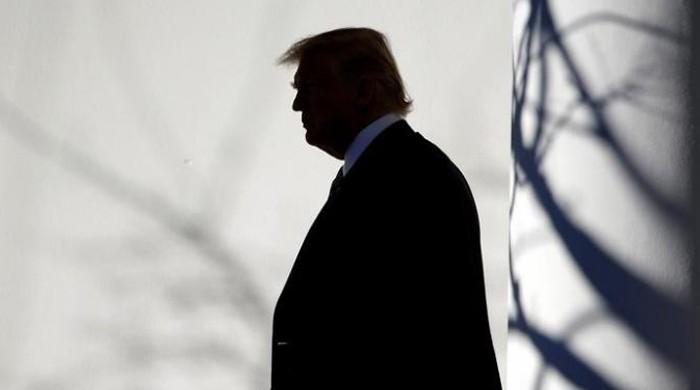White House tries to insulate Trump from Russia scandal
February 15, 2017

WASHINGTON: The White House battled Tuesday to insulate Donald Trump from a scandal over his top aide´s contacts with Russia, as it emerged that the president was aware of the problem for weeks before acting.
With calls for an independent investigation gathering pace, the White House admitted that Trump was told three weeks ago that national security advisor Michael Flynn may have misled colleagues about his Kremlin contacts.
The retired three-star general and former head of US defense intelligence initially denied discussing sanctions strategy with Russia´s ambassador Sergey Kislyak before taking office.
That could have breached US law on negotiating with foreign powers, and at minimum was a significant break with the norm that incoming administrations accept the US has "one government at a time."
Flynn was asked to resign on Monday, after what the White House said were weeks of internal investigation that turned up no evidence of wrongdoing but "eroded" trust.
The White House had painted Trump´s final decision as based on Flynn having misled Vice President Mike Pence.
But it emerged Tuesday that Trump kept his deputy, who publicly defended Flynn and repeated his claims, in the dark for two weeks.
"The Vice President became aware of incomplete information that he had received on February 9, last Thursday night, based on media accounts," said spokesman Marc Lotter.
Flynn is the third Trump aide to step back amid questions about his ties to Russia since the mogul began his improbable White House bid.
His departure follows those of election campaign manager Paul Manafort and Carter Page, an early foreign policy advisor to the candidate.
The unprecedented early resignation of a key member of staff has rocked an administration already buffeted by leaks, infighting and legal defeats.
Amid the tumult, the White House denied that Trump had instructed Flynn to discuss the possibility that Obama-era sanctions would be rolled back.
"No, absolutely not. No, no, no," said White House spokesman Sean Spicer, when asked whether such a conversation took place.











